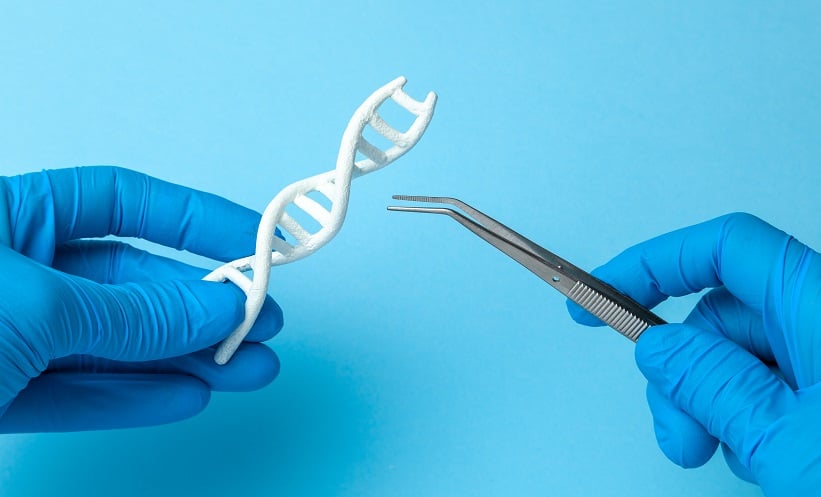A NEW study presented at ESMO Breast 2025 explores the impact of inherited mutations in DNA repair genes on the effectiveness of cyclin-dependent kinase 4/6 inhibitors (CDK4/6i) in hormone receptor-positive, HER2-negative advanced breast cancer.
The study, led by Margarida Q. Pereira and colleagues from Lisbon, Portugal, analysed data from 347 patients treated with CDK4/6 inhibitors between 2020 and 2024. Researchers compared three groups: those with germline pathogenic variants (PVs) in DNA repair genes, patients tested but without such mutations (wild-type, WT), and those not genetically tested.
Among the cohort, 29 patients (8.4%) carried mutations in key DNA repair genes including BRCA2 (n=13), CHEK2 (n=4), BRCA1 (n=3), ATM (n=2), MUYTH (n=2), PTEN (n=1), PALB2 (n=1), BARD1 (n=1) and TP53 (n=1). Although patients with these mutations showed a lower disease control rate (27.6%) compared to WT (46.2%) and untested patients (41.5%), this difference was not statistically significant. Similarly, median progression-free survival (PFS) and overall survival (OS) were shorter in mutation carriers but without reaching statistical significance.
Multivariable analysis identified central nervous system involvement as the only independent factor significantly affecting PFS across all groups.
While DNA repair gene mutations are known to predict responses to platinum chemotherapy and PARP inhibitors, their influence on CDK4/6 inhibitor efficacy remains unclear. This study provides valuable real-world insights, especially given the higher prevalence of BRCA2 mutations in the population studied. Further research is needed to clarify these findings and optimise treatment strategies for patients with such genetic profiles.
Reference
Pereira MQ et al. Impact of germline DNA repair gene mutations on cyclin-dependent kinase 4/6 inhibitor efficacy in advanced breast cancer. Abstract 370P. ESMO Breast; 14-17 May 2025.








